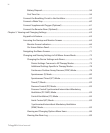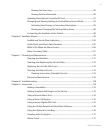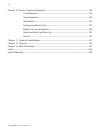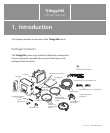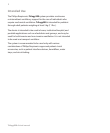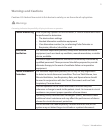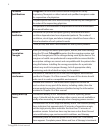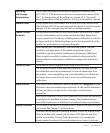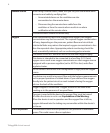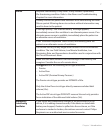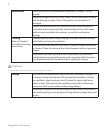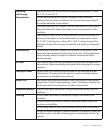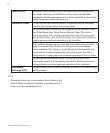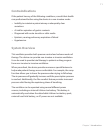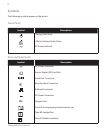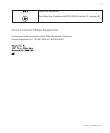
Trilogy200 clinical manual
6
Remote Alarms When using a remote alarm, make sure you fully test the remote alarm
connector and cable by verifying that:
– Annunciated alarms on the ventilator are also
annunciated on the remote alarm.
– Disconnecting the remote alarm cable from the
ventilator or from the remote alarm results in an alarm
notication at the remote alarm.
The remote alarm should be tested daily.
Oxygen When administering xed-ow supplemental oxygen, the oxygen
concentration may not be constant. The inspired oxygen concentration
will vary, depending on the pressures, patient ows and circuit leak.
Substantial leaks may reduce the inspired oxygen concentration to less
than the expected value. Appropriate patient monitoring should be
used, as medically indicated, such as an alarming pulse oximeter.
This device DOES NOT alarm for loss of the low ow oxygen supply.
This device is intended to be connected to a low ow (0-15 l/min)
oxygen source such as an oxygen concentrator or other oxygen source
equipped with a pressure regulator (set to 50 PSI or less) and a ow
regulator/meter.
Do not connect the device to an unregulated or high pressure oxygen
source.
The device may result in incorrect ow and tidal volume measurements
and improper operation of related alarms if you add low ow oxygen
directly into the patient circuit or mask instead of using the oxygen
inlet on the back of the ventilator.
Oxygen supports combustion. Oxygen should not be used while
smoking or in the presence of an open ame.
If oxygen is used with the device, the oxygen ow must be turned
o when the device is not in use. Explanation of the Warning:
When the device is not in operation and the oxygen ow is left on,
oxygen delivered into the tubing may accumulate within the device’s
enclosure.
Fire or Explosion The ventilator should not be operated in the presence of ammable
gasses. This could cause a re or explosion.



